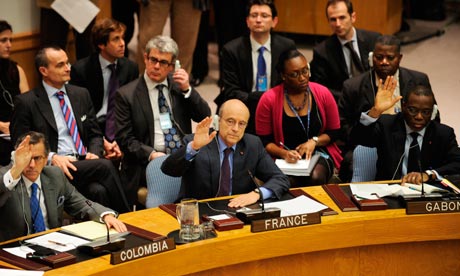Daniel M. Austin
Impunity Watch Reporter, Africa

ABIDJAN, Ivory Coast – On Thursday, March 17, at least six mortar shells were fired into Abodo, a neighborhood in northern Abidjan. The attack killed between 25 and 30 people and wounded more than 40. The United Nations (U.N.) mission in Ivory Coast claims the attack may qualify as “a crime against humanity.” The U.N. believes this attack was carried out by forces loyal to incumbent president Laurent Gbagbo. Numerous international observers believe the once stable West African nation is heading towards civil war.
On Friday, a statement from the United Nations mission to Ivory Coast claimed nearly 100 people were killed or wounded when at least six 81 mm shells were fired into the Abodo district. The statement also noted that “such an act, perpetrated against civilians, could constitute a crime against humanity.” One of the shells hit the Saika Kone market where shoppers had congregated. The U.N. believes the shells were fired from a military base in Abodo and the perpetrators of the attack had been aiming for the market area. Abodo, a northern suburb in Abidjan is controlled by militias loyal to Mr. Gbagbo’s rival, Alassane Ouattara.
According to U.N. human rights chief Navi Pillay, members of her office went to the scene of the attack and collected physical evidence. Specifically, her investigators noted “”shelling impacts were visible throughout the market and at least three houses were destroyed.” Ms. Pillay also explained that her “mission collected photographic evidence of the damage caused as well as physical evidence of shell remains.”
Mr. Gbabgo has denied any involvement in the incident. In response to the U.N. statement, Ahoua Don Mello, a spokesman for Mr. Gbagbo’s government, told the AFP news agency the accusations were part of a larger conspiracy by the U.N. and France to oust Mr. Gbabgo and install Mr. Ouattara as president. Further, Mr. Gbabgo claimed that since forces loyal to Mr. Ouattara took control of the neighborhood, his security forces have not had access to Abodo.
International observers claim that this incident is another example of pro-Gbagbo forces firing upon innocent civilians. The United Nations claims over 400 people have been killed since the disputed presidential election. Prior to the election, Ivory Coast was a peaceful nation prospering from its role as the world’s largest cocoa producer.
For more information, please see:
ABC NEWS — UN Condemns Mortar Attack on Ivory Coast Market – 19 March 2011
2011
New York Times — Ivory Coast: Attack on Market May Be War Crime, U.N. Says – 18 March 2011
Press TV — Dozens killed in Ivory Coast violence – 18 March 2011
Reuters — UPDATE 4-Gbagbo forces kill at least 25 in Abidjan attacks-U.N. – 17 March 2011
RTT News — UN Condemns Mortar Attack On Ivory Coast Market – 18 March 2011
UPI — U.N. wants ‘scale up’ in Ivory Coast – 19 March 2011


